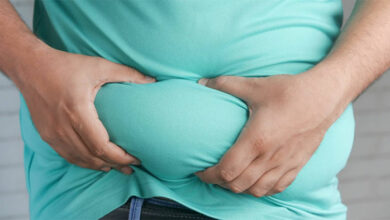UAE doctors warn how your lifestyle choices could cause infertility

Doctors are raising alarms about the significant impact of lifestyle choices on fertility and are keen to highlight how various aspects of modern living can hinder reproductive health. From dietary habits and smoking to stress management and alcohol consumption, the choices individuals make daily can have effects on their ability to conceive.
Doctors in the UAE say that understanding and addressing these lifestyle factors is essential for those planning to start a family, as well as for maintaining overall reproductive health.
According to them, the three main causes of infertility are stress, obesity, and diet. Fertility of both men can be negatively impacted by poor food choices and sedentary lifestyles that result in overweight or obesity.
“Overweight women may have irregular menstrual periods and ovulation, while overweight males may have poorer sperm counts and quality,” said Dr Amal Hassan Abddelaziz, head of obstetrics and gynecology and consultant, Thumbay University Hospital-Ajman.
Postponing pregnancy
“Furthermore, because career-focused lives tend to postpone pregnancy, this can have a substantial negative influence on fertility by accelerating age-related losses in reproductive function. Males and women both have declining fertility as they age: women have declining egg quality and quantity after the age of 35, while males have declining sperm quality and quantity,” said Dr Amal.
The other factors that affect fertility are smoking, alcohol, stress, and weight. “Smoking reduces fertility in both men and women. It damages eggs, sperm, and reproductive organs. When it comes to alcohol, excessive consumption can negatively affect fertility,” said Dr Deepa Rajan, specialist in laparoscopic gynaecology and obstetrics, Aster Hospital, Al Qusais.
According to a survey by the World Health Organization on smoking in the UAE, it is found that 14.3 per cent of young males, 24 per cent of adult males, 2.9 per cent of young females and one per cent of adult females are smokers.
Doctors suggest that even physical activities should be done in moderation. “Both, too little and too much exercise can affect fertility. Moderate, regular exercise is beneficial,” added Dr Rajan.
As the journey to parenthood becomes more challenging for many, understanding these lifestyle factors could be the key to improving fertility outcomes. Doctors are urging individuals and couples to be vigilant and proactive in adopting healthier practices to enhance their chances of conceiving.
Diet influencing fertility
“A balanced, nutrient-dense diet high in vitamins, minerals, antioxidants, and fatty acids is essential for reproductive health. Women need nutrients to regulate hormones and grow eggs. Heavy diets with processed foods, sweets, and bad fats can cause hormone imbalances, irregular menstrual periods, ovulation problems, and decreased fertility,” said Dr Amal.
“Men should include minerals like zinc, selenium, and vitamins C and E in their diet to support healthy sperm, since they are essential for sperm motility and production,” said Dr Rajan.
Fertility screenings
According to doctors those under 35 of age who don’t have any known reproductive problems should try to conceive naturally for roughly a year before getting tested. “Due to age-related decreases in fertility, women 35 years of age and above should think about testing after six months. Individuals who have a medical history of reproductive issues or who have lifestyles that impact fertility ought to get testing early,” said Dr Amal.










